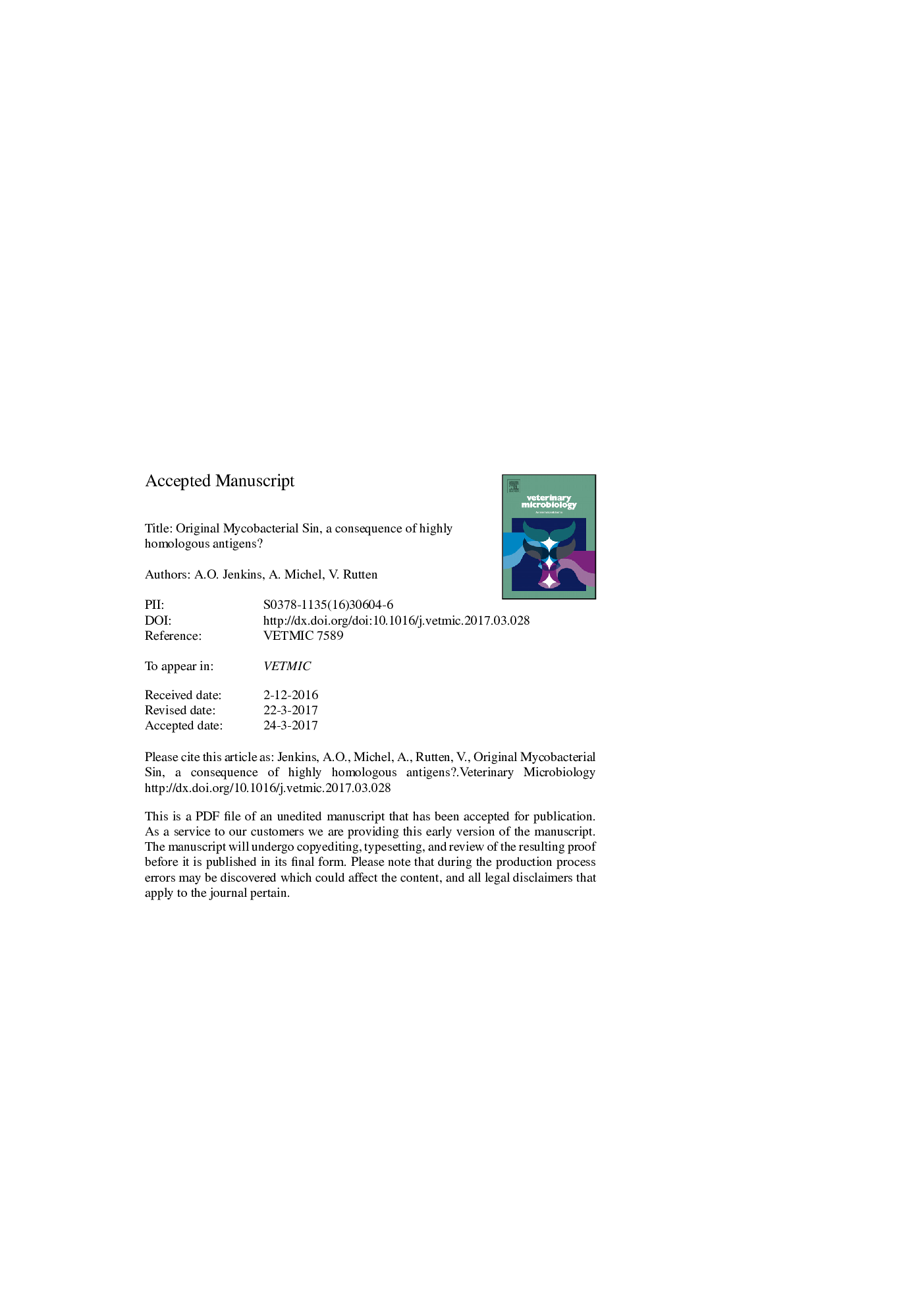| Article ID | Journal | Published Year | Pages | File Type |
|---|---|---|---|---|
| 5545281 | Veterinary Microbiology | 2017 | 29 Pages |
Abstract
The role of antigens shared between Mycobacteria in in-vivo cross-reactive immune responses in host animals, have been reported to be responsible for reduced BCG vaccination efficacy as well reduced specificity of routine immunological diagnostic tests. This presents with significant disease control challenges in humans and animals. The present review highlights the results of previous studies on the effect of pre-sensitization to environmental mycobacteria on either pathogenic mycobacteria and/or M. bovis BCG, in experimental animals. It also takes an in-depth view into assessing the genetic similarities and relationships between atypical mycobacteria and Mycobacterium tuberculosis complex (MTBC) and how they might explain the immunological imprint of environmental mycobacteria in directing the hosts' immune response upon subsequent exposure to other classes of mycobacteria. The outcome of this review suggests that genetic closeness between particular atypical mycobacteria and MTBC usually indicate a higher level of homology for certain shared protective antigens. This ultimately results in a higher level of cross reactive immune responses as compared with other atypical mycobacteria that are further away genetically. This would explain the different effects of environmental mycobacteria on MTBC that have been reported in the different studies. In other words the direction of the host immune system in response to exposure to MTBC would depend on the type of environmental mycobacteria that was encountered in the initial exposure. We also explain these mycobacterial interactions in the context of the phenomenon of “Original Mycobacterial Sin”. The effects of these inevitable mycobacterial interactions on field diagnosis and control by vaccination and how to circumvent them are discussed.
Keywords
Related Topics
Life Sciences
Agricultural and Biological Sciences
Animal Science and Zoology
Authors
A.O. Jenkins, A. Michel, V. Rutten,
